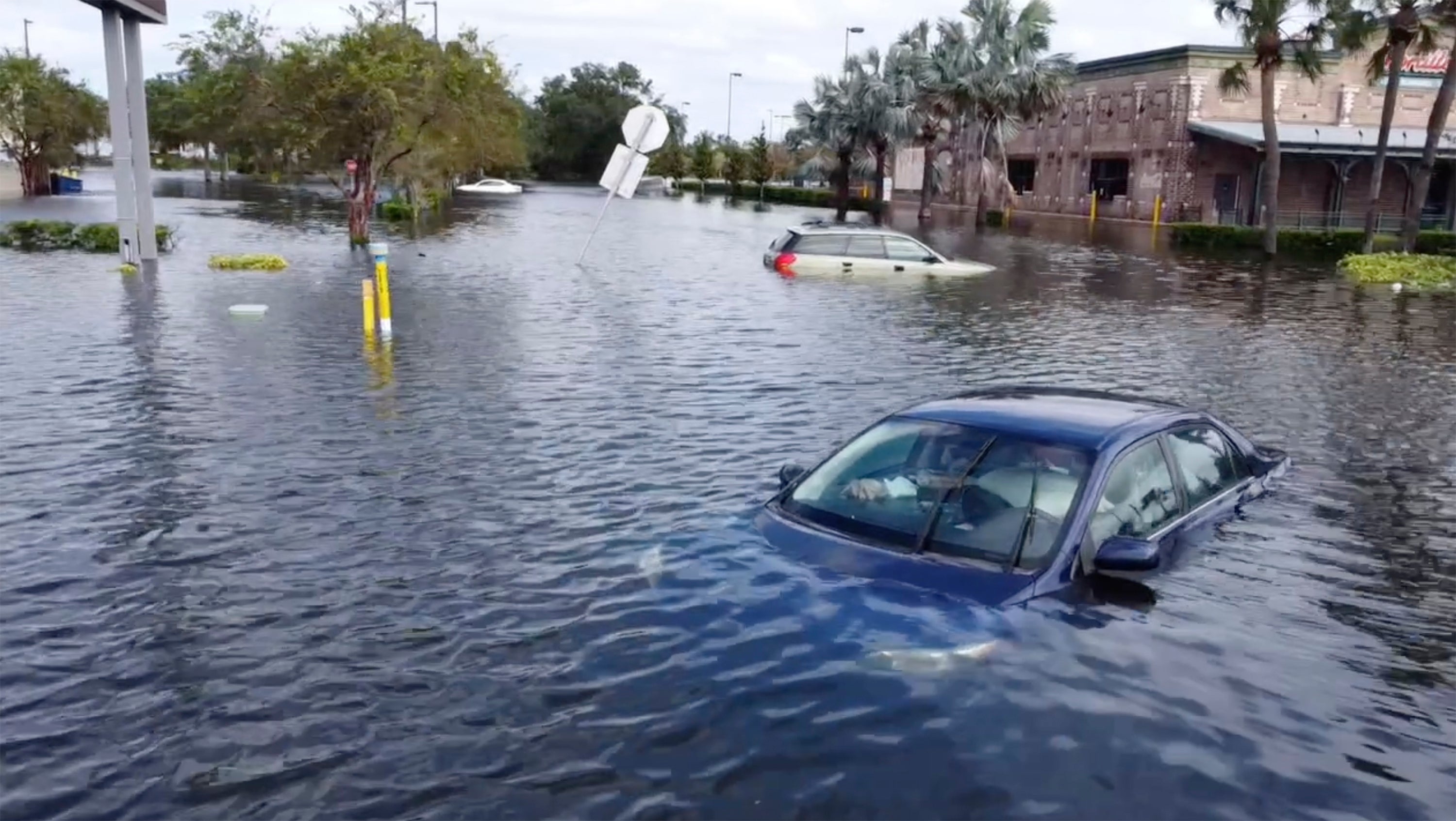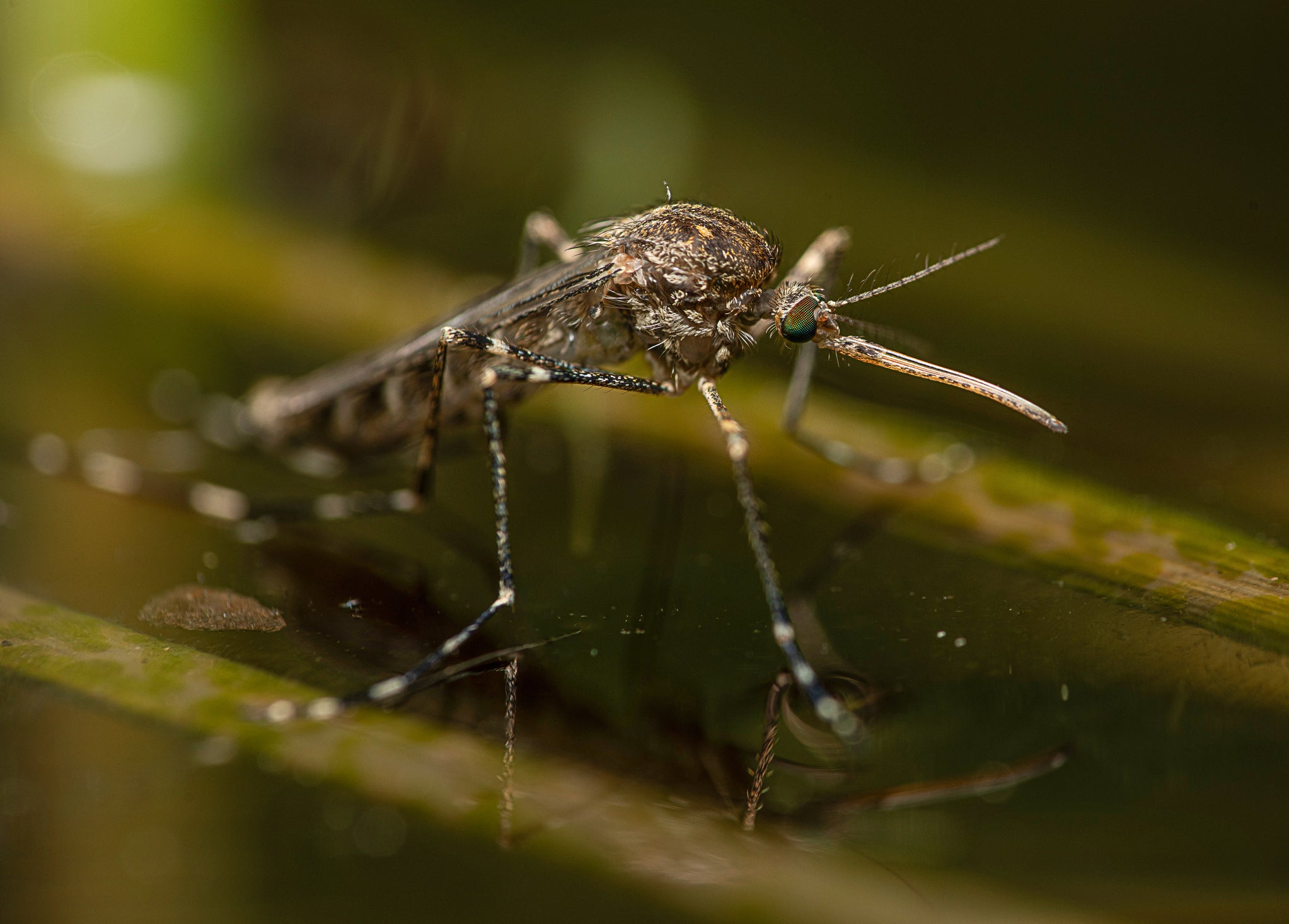What could be lurking in Florida floodwaters? Health officials warn of flesh-destroying bacteria, mosquitoes after Hurricane Milton
Flooding along Florida’s west coast could bring disease and infection in multiple forms, health officials warn
Your support helps us to tell the story
From reproductive rights to climate change to Big Tech, The Independent is on the ground when the story is developing. Whether it's investigating the financials of Elon Musk's pro-Trump PAC or producing our latest documentary, 'The A Word', which shines a light on the American women fighting for reproductive rights, we know how important it is to parse out the facts from the messaging.
At such a critical moment in US history, we need reporters on the ground. Your donation allows us to keep sending journalists to speak to both sides of the story.
The Independent is trusted by Americans across the entire political spectrum. And unlike many other quality news outlets, we choose not to lock Americans out of our reporting and analysis with paywalls. We believe quality journalism should be available to everyone, paid for by those who can afford it.
Your support makes all the difference.Following Hurricane Milton’s historic rainfall and widespread storm surge, Florida health officials are warning residents about the hazards the storm’s extensive floodwaters can pose.
Many of the dangers are minuscule, including bacteria, chemicals and the spread of disease-carrying mosquitoes.
Vibrios, a naturally occurring bacteria that lives in seawater, can cause skin infections and ulcers when people are exposed through open wounds.
Exposure to the bacteria Vibrio vulnificus – which can spread to humans when they eat oysters – can be severe or life-threatening, although most healthy individuals typically experience mild disease. Those symptoms include vomiting and diarrhea, fever, chills, high heart rate and disorientation.

However, for people with weakened immune systems, it can invade the bloodstream, leading to fever, chills, septic shock and skin lesions. Sometimes, infection may lead to amputation, and infections that enter the bloodstream are fatal about 50 percent of the time.
“After heavy rainfall and flooding, the concentration of these bacteria may rise, particularly in brackish and saltwater environments,” Florida’s health department warned this week.
The state has seen an influx of cases this year, up by more than 35 from last year. There have also been 11 deaths. The department said that the “unusual increase” in Citrus, Hernando, Hillsborough, Lee, Pasco, Pinellas and Sarasota counties was due to the impacts of Hurricane Helene.
People can protect themselves by avoiding wading in these waters, covering wounds with waterproof bandages, and washing skin and cuts with soap and clean water after contact with floodwaters.

The Department of Health also warned that flooding brings an increased risk of harm from mosquito-borne illnesses, such as Dengue fever West and West Nile Virus. Both viral infections have the ability to take lives and have been reported across the state over the summer.
Mosquitoes hatch in standing water, and are more active in warmer weather. The temperature in much of western Florida has been in the 80s this week.
Pregnant women are particularly vulnerable to the risks associated with mosquito-borne illnesses.
“It is crucial for expectant mothers to take extra precautions following the storm,” the department said.
To prevent such infections, people can drain any standing water, use mosquito repellents and cover up when going outside.

Join our commenting forum
Join thought-provoking conversations, follow other Independent readers and see their replies
Comments